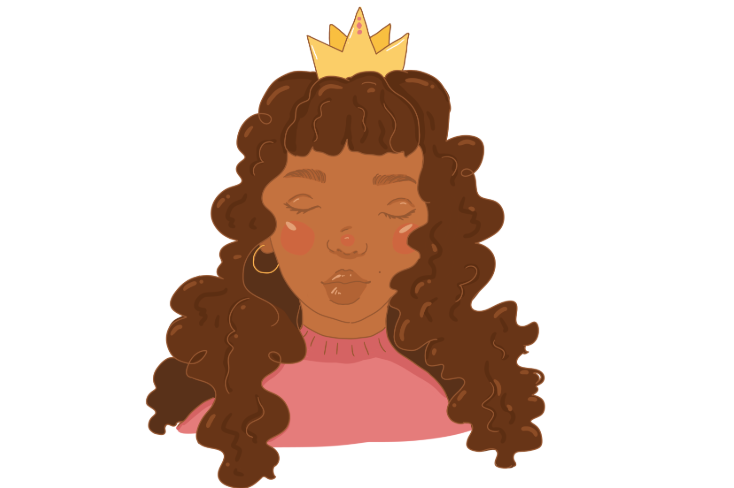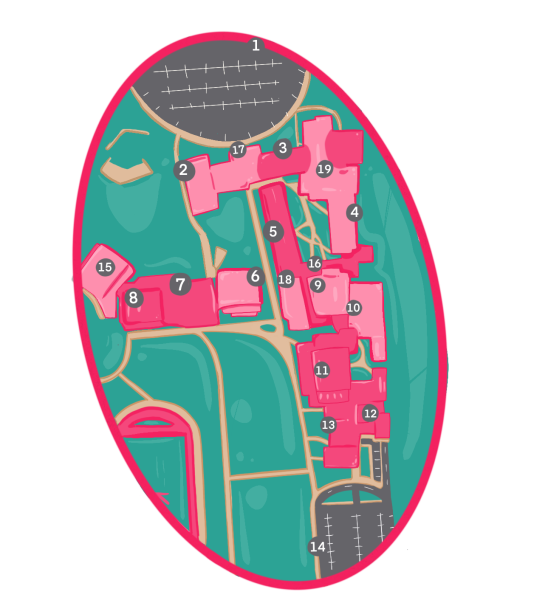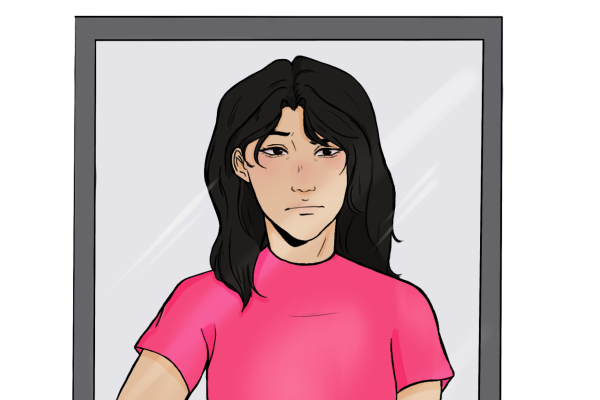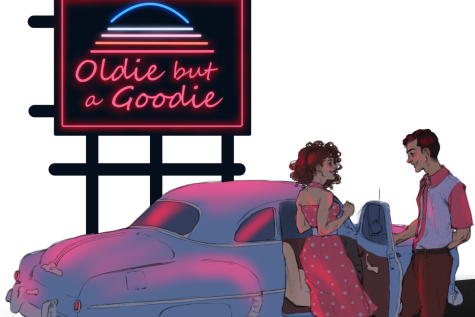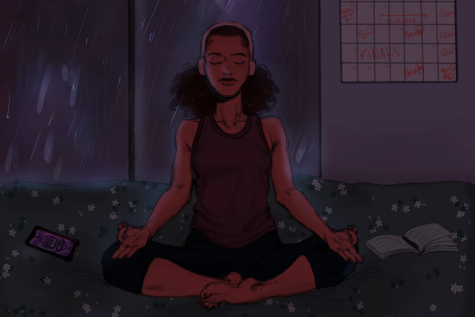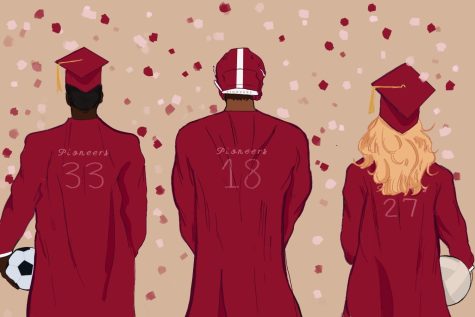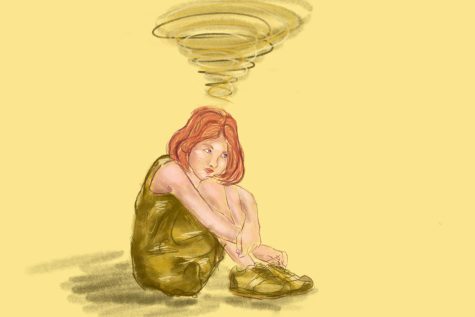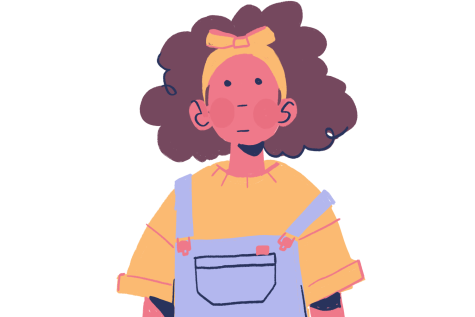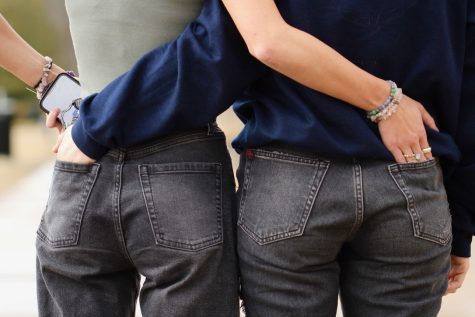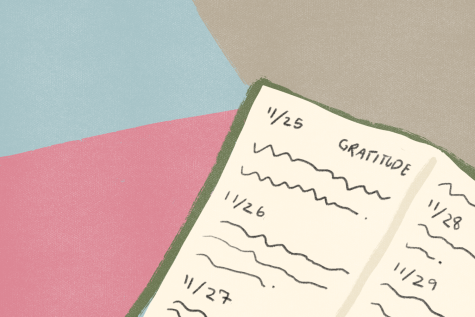Coiled in beauty standards
art by Bismah Syed
We remember in preschool being told by other kids we were ugly because our lips were too big and brown and our hair was weird. From then on we tried everything to make our hair look as “white” as possible. We used to ask our moms over and over why we couldn’t just have straight hair. Whatever was on our head was ugly and we knew it. This idea becomes ingrained into the minds of many people, and so many more come to accept it. African-American women’s hair is unjustly not considered as beautiful compared to other hair types in today’s society. These discriminatory beauty ideals affect African-American women today.
Due to hair being such an important aspect of African-American woman’s beauty they have manipulated it since the beginning of time. Traditional styles included many forms of twists, buns and braids. Different shaved designs and shorter hair were also popular due to religious and spiritual reasons in pre-colonial times in Africa. But through the introduction of European styles and culture in the 16th century what was once considered beautiful completely changed. Black women now have different beauty standards to follow. This new need to conform to European ideals began during European colonization. In addition to the oppression they already faced and the belief they were less beautiful than their white counterparts, slaves were poorly equipped with the materials needed to properly care for their hair.
In 1909, relaxer was invented. Relaxer, a cream, that has a very high alkali content, causing curls to chemically relax, was invented. It became normalized for women to use the cream resulting in what was seen as prettier hair, the term “good hair” was born, “referring to typically white hair with looser curls,”and African-American women began to gather in salons to get it.
African-American women’s hair is talked about and scrutinized often. Many black women spend hundreds of dollars and hours just to keep up with their hair care standards, requiring many products such as oils, edge control and special shampoos and conditioners just to make sure their hair stays healthy. However, there is not a single black hair care store in Kirkwood. According “Why the ‘ethnic’ aisle is merging with the ‘beauty’ one” from The Washington Post by Kristal Brent Zook, we have no representation. So when you can run to Target and grab your favorite shampoo, we can’t. Most everyday stores don’t even sell everything that many African Americans need for their hair. The majority of the time, we have had to drive miles to beauty supply shops in the city because those are the few places that have a range of products that cater toward African-American hair. Not to mention the few stores that do have black hair care products include them in the ethnic hair aisle rather than the beauty aisle. This creates an idea that black hair products don’t belong with beauty items. Our hair isn’t normalized by having its own separate aisle; ethnic is no longer beautiful so it can’t belong in the beauty aisle.
When trying to be taken seriously people often want to look their best, being beautiful is commonly associated with professionalism. So with curly hair not be considered beautiful, straight hair can be considered more professional and well kept. Someone with, tight straight hair that has less volume in comparison to black hair is commonly seen as someone who is more put together. According to “Does Having Curly Hair Hurt Your Career?” from Business Insider by Meredith Lepore having curly hair can even hinder your chances of getting a job. It’s ridiculous that we can’t be considered professional, because in some way our hair isn’t serious enough for you. From an early age, we learn that straight hair was what is considered to be neat and professional. Slight comments from those we encounter in our daily lives such as ‘your hair is so wild’ or ‘your hair is big’ can begin to be irritating even without the intention to be. These small comments make us feel in order to be taken seriously, our hair must fall flat against our back, rather than curls that swirl from our head, or braids that line our scalp.
The question we are always asked was “Is your hair real?” Regardless if an African-American girl has natural hair or not, that’s never an appropriate question. Girls with natural hair are seen better somehow, but really only if our hair is a certain length and palatable to the European beauty standard. If the curls are too kinky, then the hair is called nappy and something that needs to be “fixed.”
It’s simply a permanent crown we wear upon our heads.
Despite many styles which have been adapted by white people and are considered new and revolutionary when worn by them, such as white women wearing cornrows or boxer braids, natural curls are rarely portrayed as desirable in media. To feel as if what you came into the world with isn’t good enough is damaging. When your hair is ugly, it’s not just your hair you see as ugly. You begin to see yourself as ugly, every characteristic you have that is associated with being black is ugly. One of us wasn’t able to wear their hair down until the age of 12, because they were ridiculed if they did. When wearing it down there is no way to control the volume and give it the appearance of straight strands. At one point I was called a gorilla because of it.
With the natural hair movement, there has been strides to making African American hair be seen as more acceptable and just as beautiful as it is, and more awareness about the diversity within black hair. There is still long ways to go from straight long hair or perfect curls being the norm, but with the rise of many African American women wearing their hair how they want, it’ll be closer to achieving than it used to be.
Despite the world not seeing it as beautiful, we wouldn’t change our hair if we could. No matter how much work we must put into it, we feel that it’s truly worth it to have this hair. We can see that it beholds volumes of beauty no matter which way it is worn.
Hair is an art form that can express oneself, a spiritual part of one’s being. And despite its immense importance, hair isn’t what defines a black woman. It’s simply a permanent crown we wear upon our heads.
Your donation will support the student journalists of Kirkwood High School. Your contribution will allow us to purchase equipment and cover our annual website hosting costs.
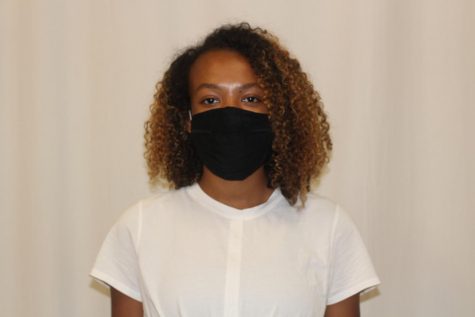
she/her
Favorite musical artist: Harry Styles
Favorite quote: "There’s a tampon in the cheez it box." - Sarah Hickenbotham
Favorite Pantone...
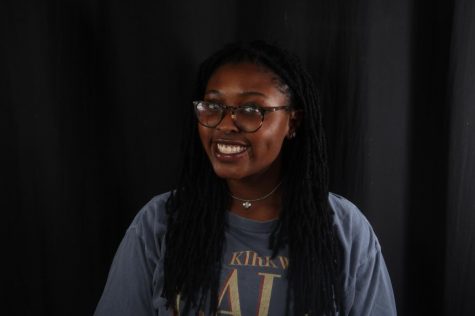
Interests: Fashion, binging movies, and watching true crime.
Favorite musical artist: Top four: Lana Del Rey, Frank Ocean, Bryson Tiller and Kali...
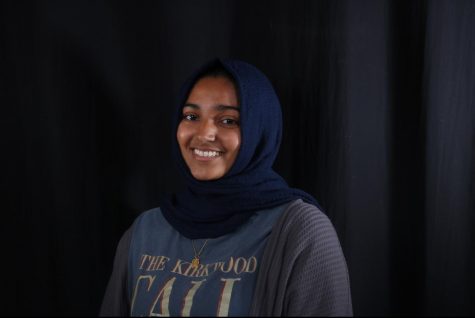
Interests: I love art and spending time with my nieces and nephews!
Favorite musical artist: Conan Gray.
Favorite quote: "You have the moral backbone...


